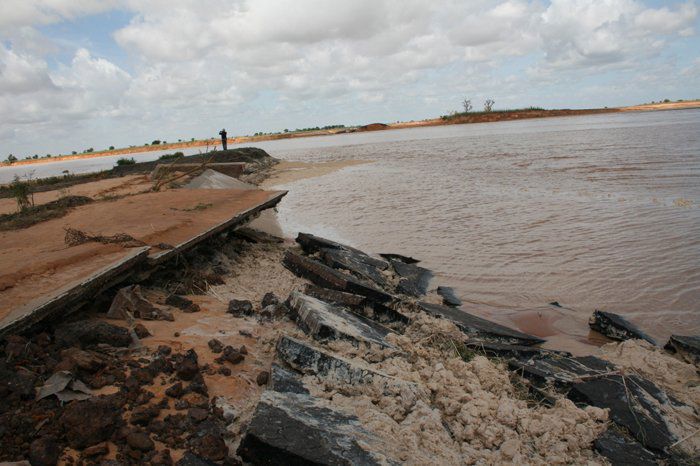In north western Nigeria, Médecins Sans Frontières and the Nigerian health authorities have started treating 50 children who are sick with lead poisoning. The poisoning, caused by local mining practices has been confirmed in two villages, while four other villages are also suspected to be contaminated, affecting as many as 10,000 people.
“This is an unprecedented and tragic situation – in one village, 30% of the children under five have died in the past year. A continued coordinated, large scale emergency response is needed, to ensure that the contaminated villages are cleaned up, that the most vulnerable receive urgent treatment, and that effective health education messages are passed to prevent re-contamination of living areas,” explains Lauren COONEY, emergency coordinator for MSF in Nigeria.
The lead poisoning is a consequence of local villagers practicing small-scale gold extraction from lead-containing ore. The processing of the ore involves crushing and drying. The crushing causes dust which contains large amounts of lead. Drying often takes place inside the huts of villagers, which increased the risk of lead poisoning of children.
The poisoning affects all of the population exposed to the dust caused by the crushing of the rocks, and its subsequent leaching into water wells and the soil. However, the most vulnerable are children younger than five years old, due to their low body weight, and because they are at crucial stage of growth and brain development. Lead poisoning can cause a loss of appetite, anaemia, weakness and renal damage. More serious consequences are the loss of consciousness and convulsions, and eventually death.
MSF has in collaboration with local health authorities, set up a treatment centre at a safe distance from the contaminated zone. As of early June, 50 children have been admitted. Another 15 to 20 children are expected to be admitted every second day, aiming for at least 100 children in the facility. Breast feeding mothers are also receiving treatment as lead can be passed to the child through breast milk. Treatment is provided with an oral drug that binds the heavy metal in the patient’s blood, which is then excreted in the urine. The treatment takes 28 days but in extreme cases two or more rounds may be necessary.
MSF is working on setting up a second treatment centre to be able to care for children from other affected villages. Furthermore, our teams are working on an information campaign to inform the population of the dangers of gold extraction and the treatment program that MSF offers. The information campaign is especially important to prevent people from being poisoned again.
“This is an unprecedented and tragic situation – in one village, 30% of the children under five have died in the past year. A continued coordinated, large scale emergency response is needed, to ensure that the contaminated villages are cleaned up, that the most vulnerable receive urgent treatment, and that effective health education messages are passed to prevent re-contamination of living areas,” explains Lauren COONEY, emergency coordinator for MSF in Nigeria.
The lead poisoning is a consequence of local villagers practicing small-scale gold extraction from lead-containing ore. The processing of the ore involves crushing and drying. The crushing causes dust which contains large amounts of lead. Drying often takes place inside the huts of villagers, which increased the risk of lead poisoning of children.
The poisoning affects all of the population exposed to the dust caused by the crushing of the rocks, and its subsequent leaching into water wells and the soil. However, the most vulnerable are children younger than five years old, due to their low body weight, and because they are at crucial stage of growth and brain development. Lead poisoning can cause a loss of appetite, anaemia, weakness and renal damage. More serious consequences are the loss of consciousness and convulsions, and eventually death.
MSF has in collaboration with local health authorities, set up a treatment centre at a safe distance from the contaminated zone. As of early June, 50 children have been admitted. Another 15 to 20 children are expected to be admitted every second day, aiming for at least 100 children in the facility. Breast feeding mothers are also receiving treatment as lead can be passed to the child through breast milk. Treatment is provided with an oral drug that binds the heavy metal in the patient’s blood, which is then excreted in the urine. The treatment takes 28 days but in extreme cases two or more rounds may be necessary.
MSF is working on setting up a second treatment centre to be able to care for children from other affected villages. Furthermore, our teams are working on an information campaign to inform the population of the dangers of gold extraction and the treatment program that MSF offers. The information campaign is especially important to prevent people from being poisoned again.


